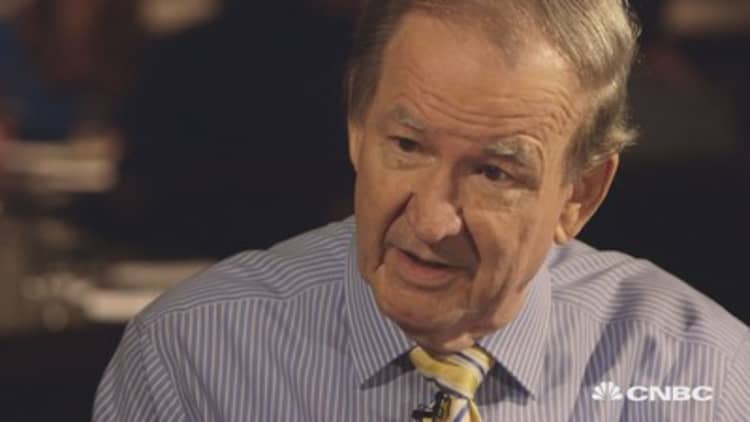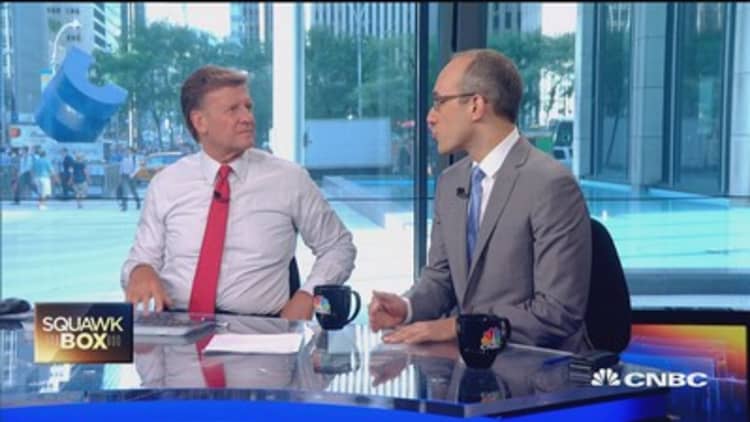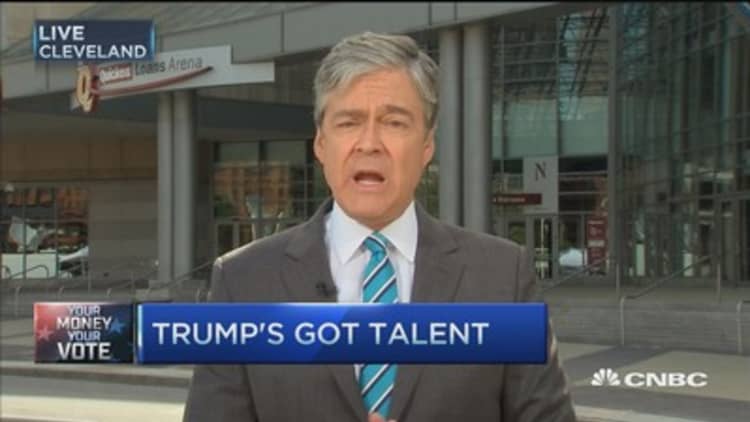


Ten of the 17 major candidates for the GOP nomination qualified to make the prime-time debate stage Thursday night, but it's real estate mogul and chairman of the Trump Organization, Donald Trump, leading the pack, with 19 percent of Republican primary voters selecting him as their first choice.
Trump, to be sure, is the most outspoken candidate on many topics, but his campaign also raises a basic question about the American CEO as an electable persona. Trump is not the first CEO to try trading up from the corner office to the Oval Office. Recent history offers examples of how candidates with business acumen position themselves during debate and campaigns, as well as to the limitations of the business experience argument.
Robert Litan, a nonresident senior fellow in the Economic Studies Program at the Brookings Institution, said Trump should continue to appeal to disaffected voters.
"I predict that Trump will mention that he is not a 'career politician' who may need to curry favor with special-interest groups," Litan said.
Read MoreAre you ready to rumble: The GOP debate bracket
Being an outsider is a big part of the CEO appeal when running for public office.
During his 2012 campaign, Mitt Romney used his 25-year experience in the private sector to position himself as a Washington outsider and noted that his time spent as CEO of Bain Capital helped him learn how America competes with companies in the international arena. Even though he was criticized by some for his private-equity past, Romney fought claims that his industry destroyed jobs by focusing on the businesses he helped create, one example being Staples. Romney contributed to the founding of Staples in 1986 by providing $600,000 of initial funding from Bain Capital. Romney also downplayed his more recent experience as Massachusetts governor.
"I only spent four years as a governor," said Romney in a GOP debate in Orlando. "I didn't inhale. I'm a business guy."
Read More
The political outsider argument was used effectively by Ross Perot in 1992 when he gained nearly 19 percent of the popular vote in one of the most successful third-party presidential campaigns in history—which played a significant role in Bill Clinton's defeat of the senior George Bush.
The son of a cotton broker, Perot started his career at IBM as a salesman in Texas. He soon became a top employee at the company but decided to quit his job after IBM would not give him additional computers to sell once he hit the company's quota. Perot then founded Electronic Data Systems, an information technology company, which he later sold to General Motors for $2.5 billion in 1984. Despite these accomplishments, Perot lost both of his bids, 1992 and 1996, for the presidency.
The paradox of CEO for president
"I still think that [Trump] will differentiate himself based on his business background by saying he cannot be bought," Litan said.
Being a Washington outsider may, in fact, ultimately be more appealing to voters than a CEO's actual business experience.
Carly Fiorina, who will appear in an earlier Thursday debate for candidates who are polling poorly, is also seeking the Republican nomination. Recognized for being the first woman to run a Fortune 50 business, Fiorina was the CEO of Hewlett-Packard from 1999 to 2005. Her campaign website tells the story of how she worked her way through the ranks in only 15 years, starting as an entry-level employee at AT&T to launching Lucent Technologies, a spin-off of the company.
Read More
There's a good reason why CEOs put their business foot forward: Voters have typically ranked the economy as the No. 1 issue on their minds. But Litan said the connection between business success and voter appeal remains tenuous.
"You would think that common sense would dictate that we choose someone who is well versed in business and has experience running a company for president," said Barbara Kellerman, a James MacGregor Burns Lecturer in Public Leadership at Harvard University's John F. Kennedy School of Government. "Advantages on paper do not always translate to votes, because voters are not necessarily the most rational."
Litan said that Trump, who is known for his decisiveness on the campaign trail, might not have the easiest time overcoming voter perception that he is a leader used to running his own show.
"Having a business background may give a presidential candidate a greater appreciation of what a business has to bear in terms of taxes and regulation," Litan said. "Once in office, though, voters may recognize that business leaders who are used to calling all the shots may have a more difficult time compromising with others."

